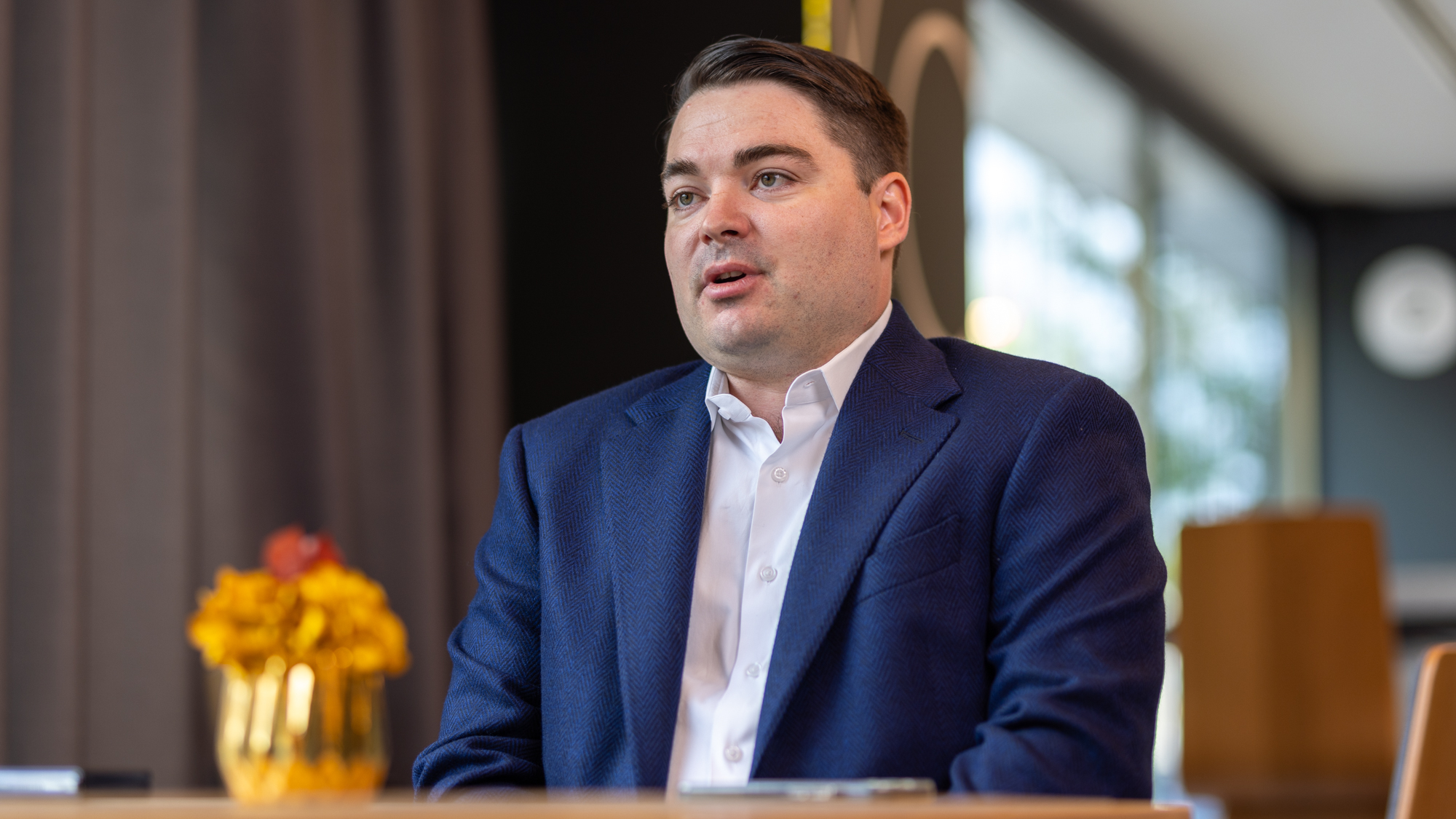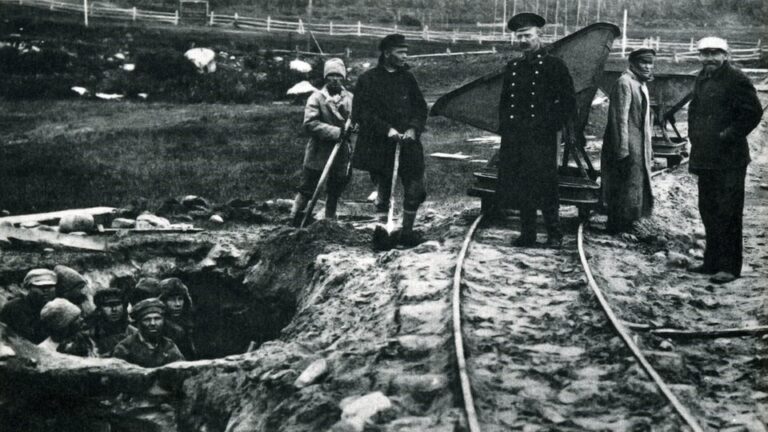Samuel Duncan, a senior Canadian conservative advisor with extensive political and private sector experience, recently visited Budapest to give a lecture at the Mathias Corvinus Collegium (MCC) on the upcoming Canadian elections. During his visit, Duncan sat down for an interview with Hungarian Conservative, where he discussed the factors behind the Trudeau government’s declining popularity, the rising support for the Conservative Party, and the potential relations between Hungary and Canada under a conservative government. He also revealed what Canadian conservatives could learn from Hungary.
***
Canadian politics has perhaps not been as eventful in recent years as it is today. While the elections are scheduled for next year, the Trudeau government is facing increasing fragility, which fuels growing speculation about the possibility of early elections. What are your thoughts on this?
So I believe there will be an early election. I spend a lot of time in Ottawa, in our nation’s capital, and in Toronto kind of paying attention to the political comings and goings. Right now, the prime minister has a minority government. It had been propped up in effectively a coalition government with a socialist party, the New Democratic Party. They had indicated they’ve removed their support officially with the government. But Prime Minister Trudeau and the Liberals are very, very unpopular. They’ve been behind in the polls for about 18 months now. There’s a real sense that change needs to happen in Canada. The growing theory right now is that the Trudeau government’s budget this spring will not pass. The budget not passing means that the House effectively has non-confidence in the government, which would trigger an election. So the best guesses right now would be kind of a spring election, which would only be six months before the scheduled legislative elections in the fall.
How did Justin Trudeau and the Liberal Party fall this low?
I would say maybe at the first and foremost, Canadians like to have a government for about 10 years. It really feels as though that after that amount of time that Canadians, they kind of tire of whatever parties in power—usually it’s always either been the conservatives or the liberals. We’re nearing about the 10-year mark of the Trudeau government. So it’s a time that’s not uncommon to change. What is unique about this is the level of individual dislike of the prime minister within Canada. I think this can be caused by a number of things, both on the left and the right. Maybe I’ll start on the left first. Trudeau has taken the Liberal Party to be a more progressive party. They typically have been a centrist party. Pro-business, left on social issues, semi-right on economy—from a European standpoint right, from a North American perspective a little bit more centrist. Trudeau has failed to deliver the full aspect of the progressive agenda. He’s campaigned on electoral reform, which is a big pet issue of progressives in Canada. He has failed to deliver on that. He’s failed to really drive home as much change on the progressive side as some of his supporters would like, which has hurt him on the left. But then also on the right, he’s gone too far in some of those areas for people in the centre or the right. Prime Minister Trudeau is known for being one of the most progressive world leaders in the G7 to promote the woke ideology. He certainly is an embodiment of a lot of those issues and those values. That has alienated a lot of people in Canada in the centre.
‘Prime Minister Trudeau is known for being one of the most progressive world leaders in the G7 to promote the woke ideology’
Finally, we’ve seen unprecedented economic challenges over the last few years following COVID with high inflation, cost of living concerns being very paramount for a lot of people. He’s being blamed for a lot of that with a high spending government that Canadians believe is contributed to inflation as well. There’s been a housing crisis. Housing affordability in Canada is probably the number one issue in domestic politics. Trudeau presided over a rapid increase in housing prices and has really locked out a lot of younger people and middle class people from owning a home in Canada—a country with a historic, really high home ownership rate, hovers around 70 per cent. So there’s a culture of home ownership in Canada, and that’s been harder and harder to achieve. That issue itself has really hurt him and really hurt his government.
You have mentioned several pressing issues. What solutions would the Conservative Party offer to address them?
On the flip side, the Conservative Party, which is led by Pierre Poilievre, has really been campaigning for a few years on getting government spending under control. He kind of became really popular amongst conservatives when in the early days of COVID he was predicting high inflation from high government spending. Everyone, all the elites laughed at him, all the economists said: ‘No, that’s not going to happen.’ Even as it was happening, people were saying, this is transitory, it’s not actually a problem. But he kept to his guns and said, look, we need to get government spending under control. That gave him a lot of credibility with Canadians when they saw what he was saying actually came true. He’s made a commitment what he calls ‘fix the budget.’ We have a history in Canada of balanced budgets, but I think the magnitude of the fiscal challenge in Canada makes it probably hard politically to commit to a balanced budget. So he’s using the wording fix the budget.
Secondly, on housing, he’s proposed a radical supply agenda to build more homes. The real challenge underlying the housing market is too much demand and not enough supply. We’ve welcomed record levels of immigration over the past few years and we haven’t built up the housing supply that will house all the people that are coming here. He has a few interesting policies. One is in our federal system in Canada, federal government sends a lot of transfers to the provinces for infrastructure, for other sort of social policies that the provinces are responsible for. He has proposed tying commitments of federal funding to the provinces on commitments of building homes. So he’s trying to have an outcome that says: ‘If you want money from the federal government, province of Ontario or province of British Columbia, I need to see hundreds of thousands of new homes being built.’ That direct tie of federal dollars to increased supply is one of his policies. He also fundamentally believes getting the budget back on track and lowering inflation will also help ease some of the concerns in the housing market. Housing is a difficult challenge from a regulatory standpoint in Canada because there’s three levels of government involved in it: the municipal government, the provincial government, and the federal government. He has some limited tools where the municipalities are actually probably the ones that have the most tools. So he’s committed to working with mayors and local politicians to try to figure out ways that he can help.

We have yet to discuss foreign policy. The Trudeau government’s stance on the two major conflicts currently affecting the international community is well-known: they are strongly pro-Ukraine, while in the Middle East, they take a more cautious approach, aiming to balance their position between Israel and the Palestinians. How does the Conservative Party’s position differ?
I would say on Ukraine, the two parties are pretty close. Conservatives are very strong supporters of Ukraine. I would say they’re probably a little bit more supportive even than the liberals in terms of support for providing military aid and obviously support for Ukraine and Ukraine’s right to defend itself. Canada has the largest population Ukrainians outside of Ukraine in the world, so there’s a huge Ukrainian diaspora, and they play a very active role in Canadian politics. But broader to that, there is a principled stance that both is cross partisan on Ukraine, and I don’t think you’d see much deviation on that. As it relates to Israel, the conservatives are unabashedly pro-Israel. I would say they are one of the most pro-Israel political parties that you will see outside of Israel. There is no daylight between the conservatives and the ability for Israel to defend itself, its people and its homeland. That also relates to Iran. Pierre Poilievre was quoted recently in the Wall Street Journal where he had some comments that were very harsh against the Iranian regime and the way they have been supporting the Hamas terrorists that are attacking Israel. It’s a domestic issue in the sense that Canada is a very high Muslim population. There’s a lot of protests and rallies for the support of Palestine in our country. Quite frankly, from a political standpoint, you’re going to get more votes in Canada just from taking the position that Justin Trudeau has. Pierre Poilievre’s and the conservative’s perspective, it’s a moral standpoint, it’s not a political calculation. They stand arm in arm with Israel, and you see a very, very strong and robust support of Israel should he become the prime minister.
While the Hungarian government’s position on Ukraine differs significantly from that of the Canadian conservatives, they share similar views on Israel. In Hungary, both the people and politics seems to have little connection with Canada, and I assume the same is true in reverse. Do you see any potential for a closer relationship between the two countries under a conservative government in Canada?
You’d see a change in Canadian’s diplomatic posture across the world with the conservatives coming in power. I think there’s a sense amongst the conservatives and some Canadians that the Trudeau government is kind of unserious at the international level. The prime minister gets a lot of criticism back home for when he goes to India and he dresses in Indian garb or the different socks that he wears at the G7 and his kind of flippant nature that he takes international relations. I think that has had an unfortunate ripple effect on relations with countries even like Hungary, where his concern and the government’s concern is more about their image as opposed to diplomatic relations.
‘There’s a lot of opportunity for Canadians and Hungarians to stand united to support the state of Israel and Jews across the world’
I think the conservatives are a real respectful party that I would expect to see across the world more respectful diplomatic relations with countries and find areas where there can be collaboration. Israel is a great example. I think there’s a lot of opportunity for Canadians and Hungarians to stand united to support the state of Israel and Jews across the world. I think you would see where there are strategic interests that align opportunities to foster and develop. But overall, I would see a change in that there would be a much more professional relationship between governments and a return to a more typical diplomatic role as opposed to the current government’s approach, which is a bit flippant and unserious at the international stage.
Aside from your work as an advisor, you were also involved with the Canada Strong and Free Network. Could you tell us more about this organization and what its main focuses and objectives are?
This is an organization that was founded by one of the architects of the modern conservative movement, Preston Manning. He was a Western Canadian populist who started what was called the Reform Party in the late 1980s which had morphed into the modern conservative party of Canada. His vision for this organization is to bring Canadian conservatives across the country together. Canada is a very geographically diverse place. When I look at the map of Europe and the map of Canada, we’ve got a lot more space than you do. And through that comes differences. In Canada, conservatives have a coalition of different types of conservatives. A conservative in Newfoundland and Labrador on our east coast might have a slightly different view than a conservative in British Columbia on our west coast. So the goal of the conference was to bring Canadian conservatives from across the country together once a year, in Ottawa, to network, to grow relationships, to foster connections, and to help.
‘It really is critical that conservatives find places where they can network and they can grow’
It’s a non-partisan organization, it’s not affiliated with any political party here. But it is centre-right, small c conservative, and it’s a great time overall. We try to bring in speakers from primarily America or the UK, which are two countries that have very close ties with Canada, an opportunity to learn about different trends within conservatism and to as ideas and issues that change have an opportunity for debate. Not everyone there is going to agree, and that’s actually very good. It really is critical that conservatives find places where they can network and they can grow. In Canada, conservatives have been maligned as they are in a lot of different places. So it’s a great time to find some common cause with your friends and make new connections. So that’s the genesis of the organization and what it does now. It’s been operating for 15 or 20 years now. I had a role a couple years ago in helping organize the conference, but I attend every year and I’m really looking forward to next year’s I believe it’s going to be in May in Ottawa, Ontario where we expect to have probably around 1,000 conservatives from across Canada come together.
It sounds like a Canadian CPAC.
It’s funny. I brought an American speaker two years ago and he described it to me, he goes: ‘this is a much more polished and professional CPAC. It’s like a Canadian version of it.’ We do have corporate sponsors of it, which I think is interesting, unlike some of the other political conferences, very big corporate players in Canada sponsored the conference. It is seen as a credible voice. It has some gravitas. Major corporations have been a sponsors, some of our bigger banks have been sponsors. That give it some credibility as well.
From our conversation so far, it seems that Canadian conservatism differs greatly from European conservatism. Hungarian conservatism, in turn, is quite distinct from both European and Canadian conservatism. How do Canadian conservatives view Hungary, its government, and its policies?
Unfortunately a lot of the news media in Canada portray Hungary through the American media’s lens, which is not always favourable. This has some negative consequences on how the government here is viewed. However, I would say that one area where Canadian conservatives show significant interest is in family policy. Canada has the second lowest birth rate in the G7 behind Japan. We have a really declining fertility—notwithstanding I have four children, I’m doing my part. However, when it comes to family policy, I know that many Canadian conservatives view Hungary as a leader, particularly in its various incentive programmes and structures that place families at the centre of government policy. That is an area where there is a favourable view amongst Canadian conservatives look to maybe learn what policies have worked here, how could we apply them into Canada and look at it that way. Given some of the challenges that we’re facing, we see others in Europe have faced similar challenges. So where can we learn at a policy level? I think there is opportunity there for Canadian conservatives to look to the Hungarian government on policies that have worked.
Related articles:







